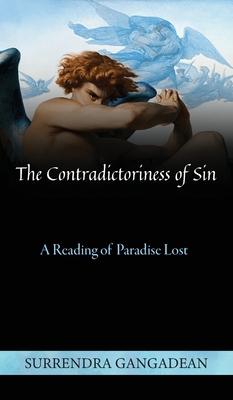The Contradictoriness of Sin: A Reading of Paradise Lost is a case study in how to engage in literary analysis to uncover timeless insights regarding human nature. Through the use of a concrete particular-Milton's Satan-a depiction of the nature of sin emerges in a compelling and memorable way. Satan illustrates the effects of sin on the mind and how self-contradiction can be seen on two levels: in thought or consciousness, and in action or being. In this work, we walk alongside Satan, watching and interpreting his gradual descent into darkness and self-destruction. Vicariously, through sympathetic imagination, we share the misery and futility inherent in sin. Dr. Surrendra Gangadean, by engaging with Milton's Satan, one of the most complex literary and biblical characters, has shown how profitable and edifying literary analysis can be when approached from a classical liberal perspective, grounded in the clarity of general revelation.

The Contradictoriness of Sin: A Reading of Paradise Lost
The Contradictoriness of Sin: A Reading of Paradise Lost is a case study in how to engage in literary analysis to uncover timeless insights regarding human nature. Through the use of a concrete particular-Milton's Satan-a depiction of the nature of sin emerges in a compelling and memorable way. Satan illustrates the effects of sin on the mind and how self-contradiction can be seen on two levels: in thought or consciousness, and in action or being. In this work, we walk alongside Satan, watching and interpreting his gradual descent into darkness and self-destruction. Vicariously, through sympathetic imagination, we share the misery and futility inherent in sin. Dr. Surrendra Gangadean, by engaging with Milton's Satan, one of the most complex literary and biblical characters, has shown how profitable and edifying literary analysis can be when approached from a classical liberal perspective, grounded in the clarity of general revelation.